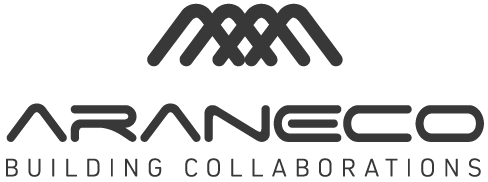Remember three years ago when we launched our first IP-based conferencing audio device, the directional Cisco Table Microphone Pro? It has been a game-changer ever since, and many of our customers love its sleek elegance, intuitive mute controls, and minimalist design—now available in Carbon Black colour too.
Well, we have some exciting news for you! Just two weeks ago at WebexOne 2024 in Fort Lauderdale, Florida we announced the new Cisco Ceiling Microphone Pro that is orderable now!

In this article, I’d like to dive a bit deeper into why this new ceiling microphone is unlike any other solution when it comes to closing the distance from in-room and remote meeting participants. In addition, I’ll show how the device brings the fastest way to set up your conferencing microphones.
Organizations today are deploying meeting room solutions to enable effective hybrid work. Yet, over 40% of the workforce still feels that meeting spaces are ineffective due to poor audiovisual experiences. In fact, audio quality issues are the topmost meeting room frustration, according to an industry survey conducted by Omdia Research.
Let’s dive a little bit deeper to understand what’s behind this challenge.
“Can you say that again?”
Ceiling microphones are a great way to keep technology out of sight. They eliminate the risk that users might mute, obscure, or misplace microphones, which can negatively impact the acoustic experience for remote participants. However, conferencing microphones need to cope with more than just the human voice. They must handle ambient and other background noise, reverberation, and other acoustic challenges in the meeting room. A fixed pickup pattern captures all sounds within the microphone’s supported pickup range, including these additional noises. In response, various microphone solutions today use beamforming technology to focus on the active speaking participant while minimizing sound from other parts of a meeting room.
But not all these devices are built the same. Many beamforming microphones require an important amount of configuration with specialist design tools to achieve an optimal sound pickup in the spaces where they are installed. Moreover, changes in such spaces usually require reconfiguring the microphone to account for changing participant positions and posture, furniture and other components in the room, modified room geometry, among others. This issue is compounded when there is a change in the room design. When the table composition or seating arrangement changes, IT and Facilities need to reconfigure the microphone to properly cover the new perimeters of the physical meeting zone.
Other solutions feature a single adaptive beam to offer more flexibility. One of our customers, who previously deployed third-party microphones across their meeting rooms, shared an issue they encountered. When more than one person talks at a time or adds comments from another part of the room, the microphone does not pick them up at all. This happens because the beamforming targets and focuses on the main speaker. During switching, it takes time for the beam to direct towards another speaker, cutting off words and comments. This means important information may get lost, and certain in-room participants might be excluded.
Introducing the new Cisco Ceiling Microphone Pro
The new Ceiling Microphone Pro isn’t just like any ceiling-mounted microphone. It is the first adaptive AI ceiling microphone on the market! Using advanced adaptive beamforming and audio processing, it captures crisp, natural sound and enables precise speaker tracking. Imagine having a microphone that adapts to changing meeting dynamics and workspace designs. Sounds amazing, right?
The microphone monitors the acoustic environment, follows the location and movement of voices in the meeting room, and directs the beams towards the active talker while rejecting other sounds from other parts of the room. By doing so, it’s way more efficient in suppressing noise, thus enabling better audio signal quality.
But beamforming is not a new technology. And here comes the twist. Let me share three reasons why this ceiling microphone is truly transformative and unlike any other solution available today.
Capturing multiple speakers’ voices
Imagine that your team is pitching a new product concept and while the main presenter is speaking, the CEO adds a side comment—but it’s not captured by the microphone. Or while the beam focuses only on the main speaker, it rejects side comments and voice from the back of the room. It therefore fails to convey the voices of all participants and essential meeting context, failing to provide an inclusive experience on the far end.
Our team really wanted to solve this, so we built 64 microphone elements into Ceiling Microphone Pro powering eight adaptive beams that effectively capture voices of even multiple speakers at the same time. And capture side comments, reactions and alike to provide more context and clarity when people connect.
Adapting to meeting dynamics and design changes
Let’s say the team has a sync after talking to the CEO but the multi-purpose room they booked had been adapted to a customer session earlier in the day and Facilities had to rearrange the tables and seats. It’s not uncommon with a traditional ceiling microphone deployment that someone from IT or an AV technician must visit the room to verify and reconfigure the microphones to make sure that people within the adapted perimeters are still captured as expected.
Ceiling Microphone Pro is adaptive by design and doesn’t require retuning or recalibration in the above-mentioned scenario. And continues to seamlessly pick up voices even when someone leans backwards in the seat, stands up, moves around the table or approaches the front of room setup to present. Especially when it comes to flexible and multi-purpose spaces, it provides peace of mind that the microphone adapts to the meeting dynamics and room design changes—and not the other way around.
Spatial awareness for a better meeting experience
And the third is the most special one. We’ve mentioned before how the Cisco codecs, cameras and microphones work together in the meeting room as an ecosystem to optimize the meeting experience in real time. Ceiling Microphone Pro monitors room activity and supports camera tracking and switching with audio triangulation. But that’s not all. For the first time in the industry, a conferencing microphone leverages rich positional and contextual data originating from the cameras to improve audio pickup accuracy and enable better speaker tracking.
What does that mean? In simple terms, it uses what the camera sees in the room and builds on this spatial awareness to know which parts of the meeting room it should focus on and which areas it should ignore.

For instance, the room where the team sync takes place is equipped with a U-shaped table. Leveraging the camera head detection and advanced AI, the microphone will understand that it should not focus the beams on the middle section where no participant is located and becomes more efficient and dynamic in activating and directing the beams to the front of room when one member of the team approaches the front-of-room setup to present.
Setting up ceiling microphones has never been faster
Now let’s have a look at the complexity of a microphone deployment.
Enabling proper audio coverage in the meeting room can be complex requiring third-party microphone solutions, external digital signal processor (DSP) units and a significant AV integration effort to make the conferencing components work together. These microphone solutions usually come with a separate management and design software, and lack a deep integration with the video conferencing equipment and cameras.
It happens very often that traditional solutions require technicians to manually tune and direct each beam. Now imagine the tedious process and associated cost to configure ceiling microphones across dozens or hundreds of meeting and learning spaces. Let alone the extensive site visits to reconfigure the audio system whenever a room layout changes.
When designing the Ceiling Microphone Pro, our vision was to dramatically simplify the audio setup and remove the need to use a patchwork of third-party tools for the audio deployment. To do so, our team developed a zero-touch, fully automated microphone calibration method. This means you just need to start the setup wizard on the Cisco Room Navigator touch controller and let the device do the rest. No matter if you have a single or multiple microphones connected to the video system, it maps the meeting space, understands the relative position of the microphones, and self-adjusts in minutes instead of hours. But don’t take my word for it, here’s a short demo showing you how it works:
By connecting over IP, it provides single-cable convenience when installing the microphone and provides a seamless way of extending your audio deployment with an Ethernet switch (like the Cisco Catalyst 1200 Series PoE switches). In fact, you can connect up to eight Ceiling Microphone Pros to a Cisco video system (except the Cisco Room Bar that supports one IP microphone) allowing you to cover the largest of spaces and the most complex training room, auditorium, and divisible room scenarios.
Your AV team can finally forget about the external DSP box. This microphone features embedded digital signal processing and leverages the intelligence of connected Cisco video devices. This translates to simpler installation, fewer points of failure, and less complexity for ongoing support. And with unified cloud device management and diagnostics in Control Hub, continuous software upgrades, and secure AES-128 audio encryption, you can reduce the manageability and risk challenge inherent in conventional audio deployments while protecting the value of your collaboration technology investment.

Sustainability, Inevitable
And of course, we shouldn’t forget about sustainability. As the first product to launch utilizing our new design language, Inevitable, sustainability was a primary focus in the design and engineering process of the Cisco Ceiling Mic Pro.
We’ve significantly reduced the amount of plastic in the product, using aluminum to manufacture the outer shell. That allows us to use highly recycled material and makes it easily recyclable when it reaches the end of its lifecycle. The top enclosure of the microphone doubles as the passive heat sink of the device, and its speaker grille is structural. And its modular design allows for easy assembly, disassembly, repair, and recycling. An AV technician needs only a single screwdriver for total disassembly, significantly reducing the effort for maintenance. We even emboss the screw head size on the top surface (unseen while installed) for convenience.

Throughout our engineering process, we’ve achieved significant size and weight savings, which brings additional benefits in the form of smaller and lighter packaging— we’re saving 5 liters of space in the box compared to our initial concept. Aligned with our circular design goals, the packaging is not only lightweight but also 100% foam and plastic-free and fully recyclable.
Flexible to suit any workspace
We designed the Ceiling Microphone Pro to blend seamlessly into various workspace environments. It’s discreet yet powerful, making it a perfect addition to modern meeting rooms and adaptable layouts. With flexible mounting options, soft, organic shapes, and crisp lines for precision, it supports a clean look and feel, whether in medium meeting rooms or large, divisible spaces.
This unobtrusive device offers excellent, tamper-free coverage for everyday meeting rooms. Plus, you can automatically combine multiple Ceiling Mic Pros to scale and provide an outstanding acoustic experience in large rooms, flexible workspaces, and multi-purpose scenarios.
Are you ready to revolutionize your meeting room audio experience with the Cisco Ceiling Microphone Pro?

To order the new device, you can visit the Cisco Ceiling Microphone Pro product page, contact your Cisco sales representative, or get in touch with regional Cisco resell partners.
Announcing Ceiling Microphone Pro on the WebexOne showfloor
The post Behind the Scenes of the First AI Adaptive Ceiling Microphone appeared first on Webex Blog.


